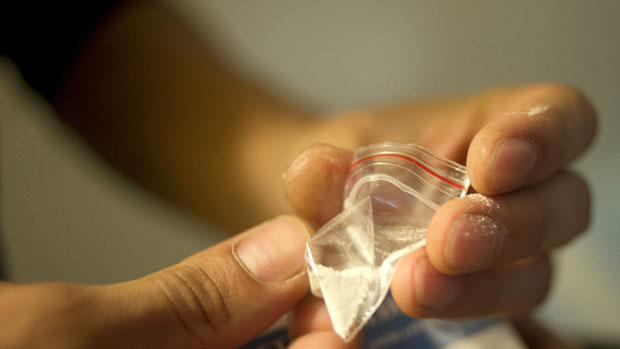Ketamine: can the party drug really cure severe depression?
Patients with long-standing depression saw rapid and 'remarkable' changes after taking the drug

A free daily email with the biggest news stories of the day – and the best features from TheWeek.com
You are now subscribed
Your newsletter sign-up was successful
THE horse tranquiliser and party drug ketamine has a dramatic positive effect on severely depressed patients, according to a study by Oxford Health NHS Foundation Trust and the University of Oxford. They found that almost a third of a group of long-standing depression sufferers experienced significant improvement in mood. Researchers said they saw “remarkable” changes in people who had experienced severe depression for many years and who had not been able to find any treatment to help them.
How did the study work? Researchers gave either three or six intravenous infusions of ketamine to 28 patients with treatment-resistant depression. Four to seven days after the final infusion, eight patients found that their depressive symptoms reduced by at least 50 per cent. Four people found themselves completely free of their symptoms. The duration of benefit varied widely for those who responded to the drug, from 25 days to eight months.
How does ketamine help? Ketamine is believed to have a direct impact on the part of the brain that is often overactive in people with treatment-resistant depression, reports The Guardian. The drug works rapidly compared with some antidepressants, which can take ten or more days to take effect.
The Week
Escape your echo chamber. Get the facts behind the news, plus analysis from multiple perspectives.

Sign up for The Week's Free Newsletters
From our morning news briefing to a weekly Good News Newsletter, get the best of The Week delivered directly to your inbox.
From our morning news briefing to a weekly Good News Newsletter, get the best of The Week delivered directly to your inbox.
Isn’t ketamine dangerous?The government upgraded ketamine to a Class B banned substance in February, following evidence that it has caused physical and psychological harm to recreational users. It has also been associated with major bladder problems. This was not experienced by the patients in the trial, but the study was not without side-effects during the initial infusion. Some patients experienced distorted perceptions, vomiting, anxiety and fainting. None felt euphoric or suffered memory loss. Episodes of suicidal behaviour occurred during the study, but the researchers claim this was not unusual given the patients were severely depressed and said that suicidal ideas diminished overall. The researchers conceded that it was a “controversial area” but said there was “no doubt that it has got potential”.
Should people with depression start taking ketamine themselves?No. Dr Rupert McShane, a consultant psychiatrist at Oxford Health and researcher in Oxford University's department of psychiatry, warned against self-medication, emphasising that patients in the trial were carefully monitored.
A free daily email with the biggest news stories of the day – and the best features from TheWeek.com
-
 How the FCC’s ‘equal time’ rule works
How the FCC’s ‘equal time’ rule worksIn the Spotlight The law is at the heart of the Colbert-CBS conflict
-
 What is the endgame in the DHS shutdown?
What is the endgame in the DHS shutdown?Today’s Big Question Democrats want to rein in ICE’s immigration crackdown
-
 ‘Poor time management isn’t just an inconvenience’
‘Poor time management isn’t just an inconvenience’Instant Opinion Opinion, comment and editorials of the day